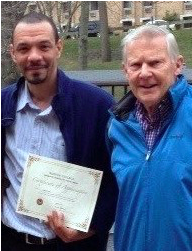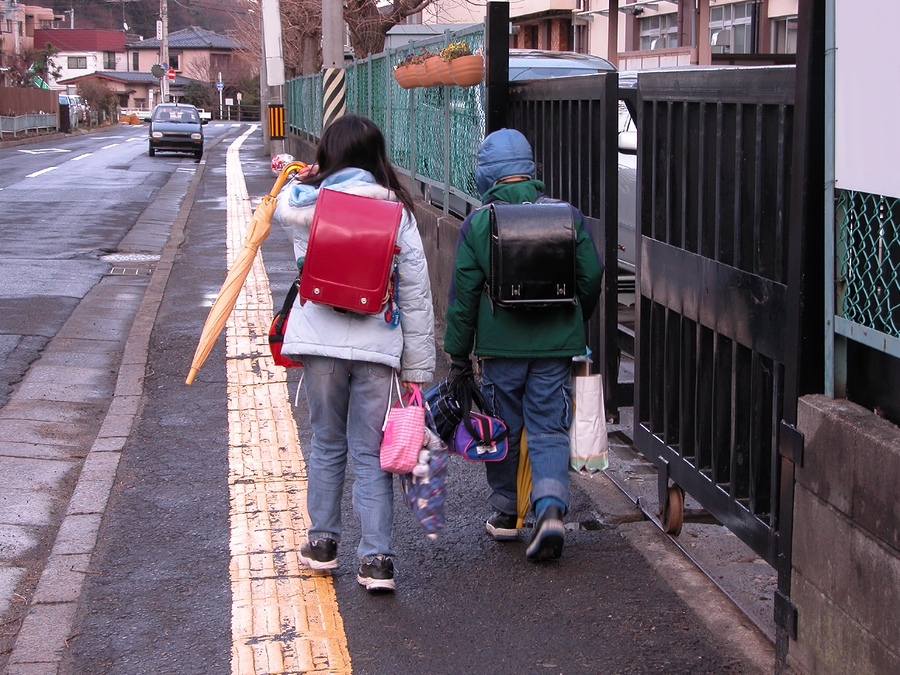Meeting youth where they are: Why social-emotional skills and culturally responsive mentoring is critical for college and career readiness
By Joana Ortiz, mentoring.org
I knew something was off when I couldn’t focus in my courses, the weight of my head was too much to bear, and getting out of bed was increasingly difficult as the days passed. I couldn’t articulate this at the time, but I was suffering from depression. During the large part of my early career in college, I struggled with mental health. While I had a community at my church, I didn’t have a community to relate to on campus, and I didn’t know how to quite fit in that space, which therefore caused my academic experience to suffer. Years later and working in the youth development and education fields, it has become clear that what I was missing and what many first-year college students are missing is a mentor. Having access to a mentor who could help me sort through the complex emotions that come along with a big life transition like college and who could do so in a culturally responsive way would have better prepared me for my college and professional careers.
Developing Social-Emotional Skills
As young people transition into the next stages in life and navigate new and foreign systems, it is critical they have the developmental relationships and supports they need to thrive. When entering a college campus, it is often assumed and expected that young people have the skills to balance the various aspects of this new life stage. However, according to the Adolescent Brain Development and Juvenile Justice Fact Sheet, the adolescent brain “begins its final stages of maturation and continues to rapidly develop well into a person’s early 20s, concluding around the age of 25.” This part of the brain, called the prefrontal cortex, handles all of our higher order thinking where executive functioning is still being formed during this stage in life. Having mentoring relationships during these life transitions can help develop the prefrontal cortex in young people. This can manifest itself through learning social-emotional skills such as being able to ask for help when necessary, managing their schedules, and building a network on campus and in the workplace.
A lot of the social-emotional skills I had developed in high school and even throughout my college career and in the first few years of my professional life were primarily self-taught and informally learned from peers and adults around me. During my first couple of years of college, I was embarrassed to ask for help, answer questions, and essentially, I struggled to get out of my comfort zone. Above all, I had no support in learning how to build new relationships in this setting and make the most of the relationships I did build. In combination with my issues at home, this fostered a sense of isolation which led to unstable mental health and consequently affected my academic performance. In order for young people to experience enriching college and professional careers, they must have access to consistent and intentional developmental relationships who will teach them these key competencies.
Being Culturally Responsive in Relationships
In addition to ensuring young people have the opportunity to sharpen critical skills to successfully tackle adult expectations, it is also critical that it is done within a culturally competent context. Cultural Responsiveness means being capable of genuinely embracing, working with, and continually learning about cultural differences. As a first-generation, American college student, and coming from a working-class family, I experienced a bit of a culture shock when I entered campus.
“Students of color who are sensitive to social rejection often find themselves feeling a lower level of belonging in the academic environment, which can prevent them from reaching their full potential. The fear of social rejection and feeling of alienation are often a reaction to prior experiences with white authority figures.”
When a young person enters a mentoring relationship, it is important they have the space to be themselves. Youth need to understand not only how to navigate certain systems by someone who has been through it before, but it is essential that they get this advice from someone who can understand the cultural context in which their behavior and thoughts exist as well as give advice on how to navigate these systems in the context of their racial, ethnic, religious, or gender identity. In the middle of my sophomore year, seeing I was struggling, my academic advisor encouraged me to visit the career center and learn more about internship opportunities. Upon meeting with my career advisor, he immediately recognized my potential, recognized himself in myself and understood the needs I required to navigate the space. Because of his mentorship, I held several internships and academic experiences abroad, in my community, and in Washington D.C. His transparency, intentionality, and consistency taught me that it was okay to be my full self in any space and that I was worthy of success.
Conclusion
At Mass Mentoring Partnership, we believe all young people have the right to access a mentoring relationship with adults. They are key to addressing the various issues youth face in school, at home, and in their communities. While informal mentoring relationships happen throughout the course of a child’s life, it is essential that adults are equipped with the tools and skills they need to help young people reach their full potential in all stages of life. While my story is unique, the need for a mentoring relationship is not. As we anticipate the start of a new school year, let us reflect on the young people in our communities experiencing new transitions and environments. Are we meeting them where they are?
For original article in MENTOR, access here.















